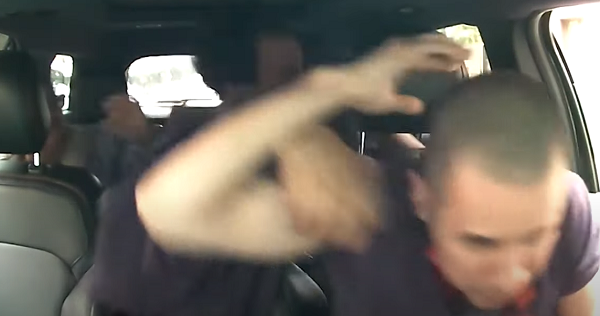
Uber driver and mother of four Christi Spicuzza was shot and killed by a customer, and her body dumped in a wooded area near Monroeville, Pennsylvania last week. The tragedy marks the latest in a disturbing and disheartening series of violence towards gig economy workers inflicted by individuals who obviously lack even trace elements of a moral compass.
According to local law enforcement, the chilling moments of Spicuzza’s murder were captured by the vehicle’s dashcam, as the 38-year-old woman begged for her life. However, suspect Calvin Crew would have none of it, as police say the deplorable thug shot later shot Spicuzza, and discarded the corpse in what turned out to be a homicide with robbery as the motivation. While the liberal media will ultimately choose to downplay the travesty or like CNN chose to ignore the merciless violence because of Crew’s race, the unacceptable incident brings to light the potentially hazardous working conditions for ride share drivers working at night in facing unpredictable and dangerous situations, many of which are exacerbated by the presence of alcohol, drugs, or simply a criminal element.
Unsettlingly, both Uber and competitor Lyft have strict anti-gun policies for workers, and Lyft includes an anti-knife stipulation in creating a “no-weapons” zone, leaving their independent contractors vulnerable to the whim of crooks in being unable to practice reasonable self-defense. The indifference to basic rights and reality by the corporate leadership has become so blatantly egregious, that workers who are able to successfully defend themselves, are unceremoniously terminated. The most prolific example of this pervading arrogance and sanctimonious delusion is with the case of a female Lyft driver in Cleveland, Ohio, who was fortunately able to stave off an attack and attempted carjacking by two men, only to be later fired for violating policy by having a gun her vehicle’s armrest.
Lyft “No Weapons” Policy- “Lyft has a strict “No Weapons” policy for all of its properties. This includes Lyft Hubs and service centers. Our “No Weapons” policy applies when you are doing business as a representative of Lyft, which includes times that you are driving for Lyft, as well as times that you are visiting a Lyft Hub.” Read the full policy.
Uber “Firearms Policy”- “Uber prohibits riders and their guests, as well as driver and delivery partners, from carrying firearms of any kind while using the app, to the extent permitted by applicable law.” Read the full policy.
This is where the big asterisk resides. The pair of rideshare giants have regularly claimed in the courts that there relationship with independent contractors is simply acting as intermediaries or as a service linking drivers with riders and vise versa. In simply facilitating opportunity for individuals who do not fall under the definition of an employee or official worker, the organization’s are legally unable to enforce any mandates covered by their ambiguously opaque terms and conditions, especially those pertaining to firearms, common law, and the Constitution. While the company’s maintain a two-faced approach to attempted code enforcement, both drivers and riders have little legal standing, as attorney’s for the businesses attempt to reinforce the theme that after all, the agreed upon ride experience is simply a consensual contract between two parties. Of course, this creates headaches when it comes to accidents and liability, and makes it nearly impossible for the big tech firms from being held accountable when drivers are maimed or killed by unruly passengers.
Actually, it seems like the corporations get a pass on having to adhere to any city, county, state, or federal measure, in drivers breaking the law by a simple drop-off, or company legalease nullifying the Second Amendment. Meanwhile, traditional cab and livery operations are ordered to be licensed and bonded, do not circumvent law by forcing workers to be unarmed, and are subject to hefty taxes.
It’s bad enough that Uber and Lyft write their own rules, but the severe consequences disproportionally outweigh the efficiency of the business model in a callous approach in disregarding for the rights and safety of the individual, both from the standpoint of the driver and the passenger.
The family of Christi Spicuzza lost a loved one and now has to face the future in the aftermath of a horrific incident. On the other hand, society is forced to take a long look at itself in the mirror and ponder whether ideology is worth the presence of a growing number of anomalies equating to the new norm, as the losses disproportionally supersede the apparent gains.